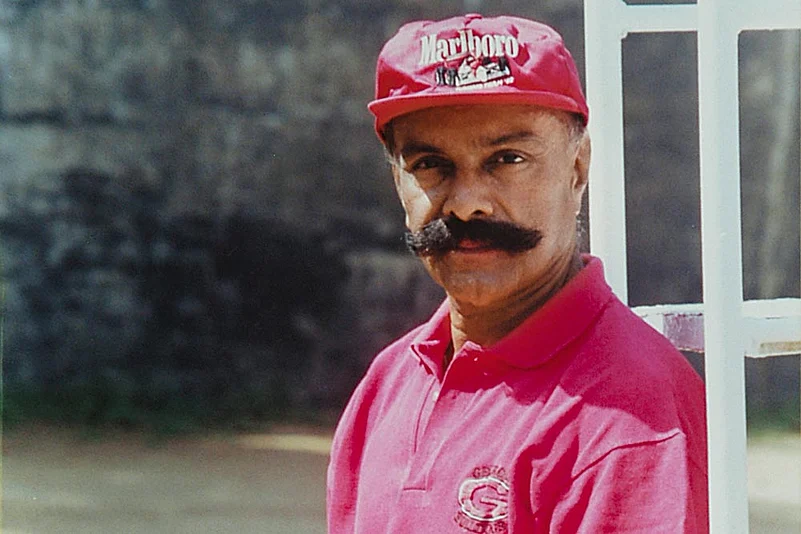Walter Vetrivel is a 1993 action movie, considered to be a tribute to a former Tamil Nadu top cop. As the director general of the state police those days, Walter Dawaram had become a legend by snuffing out the Naxal movement and later laying out the groundwork to eliminate forest brigand Veerappan.
But for the name Walter, the film had little to do with the actual Dawaram. For, star actor Sathyaraj portrayed the man hotheaded even while bringing out his honesty. “Dawaram rarely lost his cool, though people have accused him of being rash,” recalls a colleague of the senior cop, who retired from service in 1997 after an eventful career. “Every mission he undertook was well-planned. He had the capacity to think on his feet and adapt if a change of tactic was needed.”
During the early 1980s, when M.G. Ramachandran was just into his second term as chief minister, Naxalism reared its head—and Dawaram was posted as the IG of Vellore range, then a hotbed of insurgency. His task was to end the armed struggle that had claimed a few police lives and was spreading lawlessness in the state’s three northwest districts of Vellore, Thirupattur and Dharmapuri.
MGR gave Dawaram a free hand after captured Naxals killed an inspector while he was escorting them. The insurgents triggered a hidden grenade that also injured five other policemen. With active intelligence provided by K. Mohandas, the ADGP and additional IG A.X. Alexander, Dawaram hunted down the Naxals.
“His modus operandi was simple,” observes a former DGP. “Corner the Naxals and ask them to surrender. If they resisted, it would mostly end in an encounter.” More than two dozen such encounters broke the spine of the Naxal movement in Tamil Nadu, prompting the insurgents to renounce their policy of killing landlords, policemen and informers. “Barring a brief period when the TNLA, a splinter Naxal group, joined hands with Veerappan, Naxalism has posed little threat to peace in the state.”
A spate of encounters led to the formation of a fact-finding team of civil liberty activists and journalists. They visited Thirupattur to probe if the encounters were real. The team was chased away from the encounter spot by dozens of villagers, who later surrounded their lodge. After a while Dawaram descended on the spot, his revolver unholstered and warned the mob to disperse, failing which he would fire. The crowd melted in no time and Dawaram had the fact-finders escorted back to Chennai. “Only later we came to know that even the mob was organised by Walter,” chuckles a senior journalist.
According to P.S.S. Mani, a Naxal-turned-journalist, Dawaram only exploited a lack of unity among the Naxals, thus succeeding in targeting uncompromising leaders. “This softened up many of the rigid leaders and the movement splintered into various groups,” he notes. “That weakened its presence. Most of it was our own undoing more than Dawaram’s handiwork.”
By G.C. Shekhar in Chennai


























